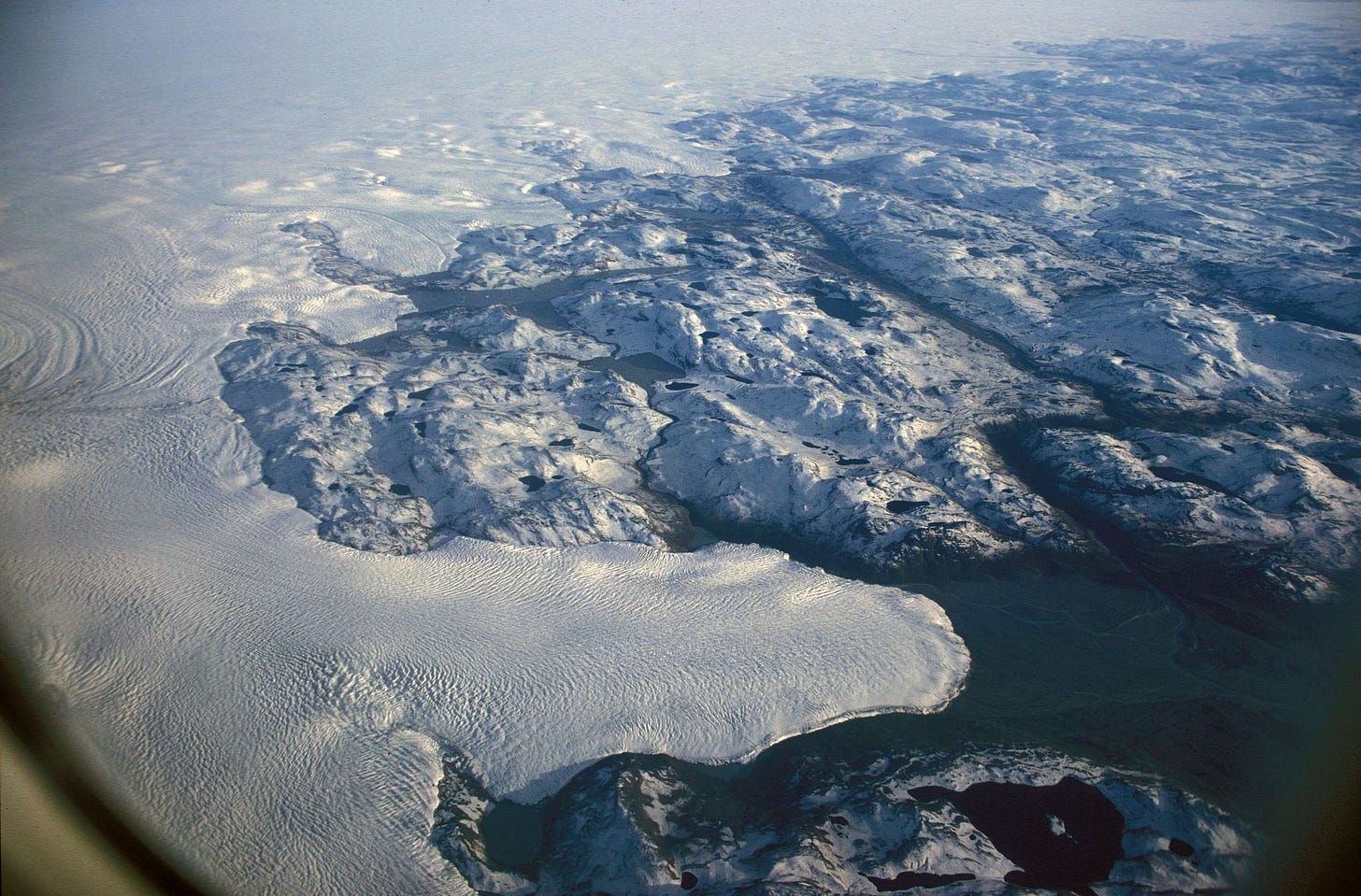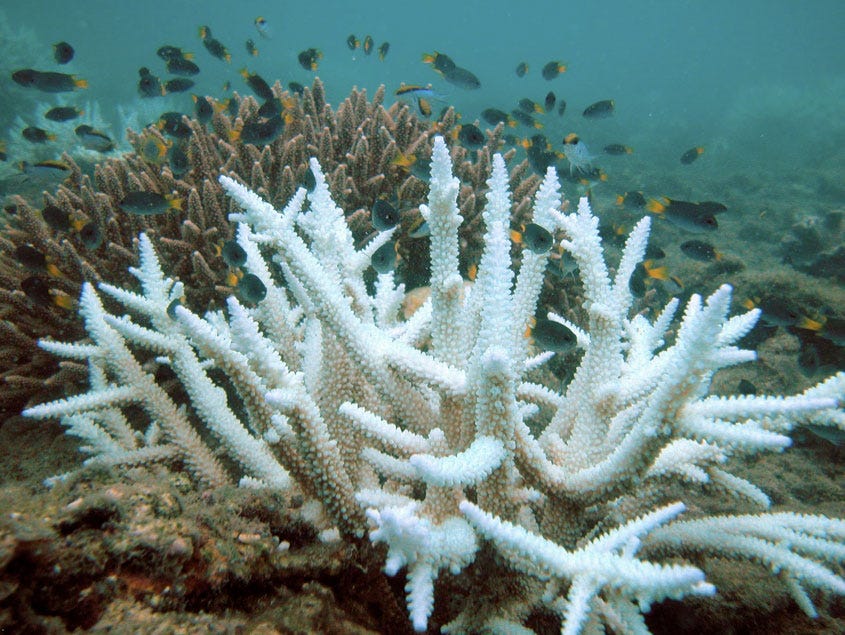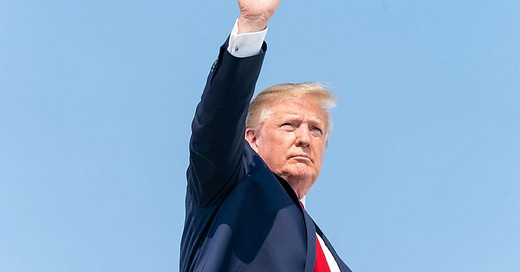what another Trump presidency means for the environment
Last week, the United States elected Donald Trump into the presidential office for a second time. It’s not the most shocking decision given the political upheaval in our country recently, but it’s one that fosters a lot of uncertainty about our politics and our planet.
It’s a decision I find deeply unsettling, especially as an ecologist and environmentalist.
Trump has an abysmal record on environmental policy. During his first term he rolled back and reversed over 100 climate policies, including limits on CO2 from power plants and vehicles, protections for half of the nation’s wetlands, and laws that prevented oil drilling inside of a national monument.
He also brought more oil and gas industry officials onto advisory committees for the Clean Air Act, firing experts and damaging the scientific credibility of the EPA.
Most famously, Trump withdrew from the UN Paris Agreement, an international treaty formed to slow the effects of climate change and keep post-industrial warming below 1.5°C.
Luckily, much of the damage caused during the Trump administration was mitigated in 2020 when Biden was elected president. Several important climate policies were reinstated, the environment became a key issue again, and the U.S. rejoined the Paris Agreement.
But the pendulum has swung back and Trump will return to the presidential office in just a few months. And the stakes are even higher this time around.
The planet is in a much more precarious position than it was just 8 years ago. Every decision, every environmental policy, is critical for preventing climate change impacts and keeping the Earth safe and habitable.

For one thing, the planet keeps getting hotter, inching toward that 1.5°C temperature increase that the Paris Agreement is trying to prevent.
The past decade has already averaged a temperature that is 1.2°C above pre-industrial measurements, and the year of February 2023 to January 2024 did cross that 1.5°C threshold.
That doesn’t mean we’re doomed to fail – the multi-decadal temperature average could end up lower if we take serious action now. But that goal feels much less attainable with Trump as president.
Trump campaigned on an anti-environment platform, pledging to repeal Biden’s Inflation Reduction Act, which provides hundreds of billions of dollars for a green economy, withdraw once again from the Paris Agreement, and promote more domestic oil and gas production.
During the environmental disaster of Hurricane Helene, Trump also referred to climate change as a “scam,” making his views on climate policy clear.
And it’s not just talk. This week, Trump selected former Representative Lee Zeldin to head the EPA. Zeldin, who is a lawyer, not a scientist, has already vowed to overturn important Biden-era climate policies and prioritize the fossil fuel industry. As a congressman, he had a long history of voting against progressive environmental measures, including an infrastructure bill that provided funding for the EPA.
There is some hope that Trump and his cabinet won’t be able to enact their deregulatory, pro-fossil fuel policies during his final four years as president. It is difficult to roll back policies that are already deeply enmeshed in government programs and funding, and Trump faces some political hurdles with very narrow Republican majorities in the House and Senate.
Additionally, the Trump administration may encourage the oil and gas industry, but the global market is still transitioning toward renewable energy. Electric, solar, and wind options are more economically viable than ever and oil drilling is becoming less appealing.
But still, having a climate change denier as the president of the United States, the country that emits 13.6% of the world’s greenhouse gas emissions, is frightening.
And if Trump does withdraw from the Paris Agreement again, it could cause a domino effect, enabling other countries not to take emission reductions seriously.
If the planet maintains or surpasses that 1.5°C increase, there is high likelihood for irreversible environmental damage, including the collapse of the Greenland and West Antarctic ice sheets, the death of low-latitude coral reefs, and the complete breakdown of global ocean circulation. Every 0.1°C increase heightens the risk of these climate disasters.

And at a more granular level, Trump’s proposed policies that soften restrictions on greenhouse gas emissions, promote more drilling and fracking, and limit funding to green infrastructure, will have serious consequences on ecosystems and individuals in our own country.
Waterways are more likely to be polluted, CO2 and methane are more likely to be spewed into the atmosphere, wildlife habitats are more likely to be threatened, people are more likely to get sick.
Experts estimate that the rise in greenhouse gas emissions from Trump’s first term led to thousands of extra deaths from poor air quality. How many more people will die this time around?
To me, the health and safety of our people and planet should always be the number one priority. But even for those who put the economy first, these policies are not smart. The U.S. is already producing fossil fuels at near-maximum capacity and the best way to stay competitive in the international market is to focus on green technology.
From all angles, another Trump term is a significant threat to environmental progress. I, personally, am extremely worried about the future of our planet after four more years of ecologically destructive politics.
But I also think it’s important to remember that we are not the only country with an impact on global emissions – there are plenty of other nations committed to staying below that 1.5°C goal – and there is a global shift toward sustainable energy sources and green economic practices.
In the United States, the federal government is not the only authority on environmental policy. States can enact their own climate policies and some, like California, are already preparing to fight the Trump administration over climate and environmental laws.
And as individuals, the biggest way we can make an impact is at the community level. It’s now more important than ever to fight for pollution-free neighborhoods, advocate for important local ecosystems, and help out with non-profits that need support. Small-scale actions are just as important as global policy when it comes to environmental protection.
There is a lot of uncertainty as we go into the next four years and I think it’s important that we not underestimate the damage a second Trump term can cause to the environment.
But this is not the planet’s death sentence, and we are not powerless against it. There are people who care about the Earth and will continue to put it first. It will just require perseverance.



